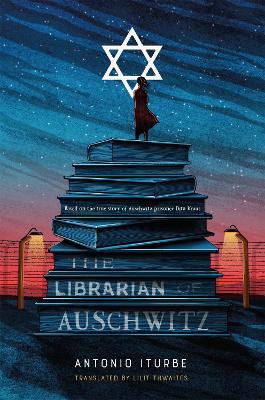Reviewed by Amber (The Literary Phoenix) on
Although I enjoy history, my main interest leans toward stories older than WWII. That said, I find myself drawn to tales about the Holocaust because of the horror of it – these are stories and truths that need to be known and told. The Librarian of Auschwitz screams to be that kind of story, and indeed, Dita seems to be that kind of person who should be remembered. The way Antonio Iturbe went into it was interesting, because it’s a piece of historical fiction… but it also relies heavily on real people. Where a book like The Book Thief does very well because of the way it took a real, horrible event and built a character that stole the reader’s heart… The Librarian of Auschwitz barely scrapes Dita’s surface.
I found it interesting that Iturbe chose to change Dita’s last name, but not her first. Her character and the others feel torn between the author wanting to tell their stories, but not wanting to speculate too much about their thoughts and feelings. And with something like Auschwitz, I understand his hesitation. The way the story rolled out… I think it would have been more successful if it was fictionalized a little more. Not to take away from the real stories, but to pull it away from the expectations of Auschwitz and give the author a little more freedom to flesh out the characters. There was a bit at the end talking about the real life people, and I think that it honors them very well… but in sticking so close to reality, the book lost something of heart.
I also do want to mention that I read the English translation of The Librarian of Auschwitz. This book was originally published in Spanish, and translations always lose a bit of something. It depends on the translator, of course, but that could be the case here.
This book was enough to make me interested in Dita Krause and the Children’s Camp at Auschwitz and Freddy Hirsch, but unfortunately, it wasn’t enough to keep my attention. The way this novel seemed to be awkwardly suspended between fiction and non-fiction made it drag out and kept the characters at an arms length. The writing style was strongly telling (not showing) and just generally… it felt like the right story, but the wrong storyteller.
Reading updates
- Started reading
- 5 September, 2019: Finished reading
- 5 September, 2019: Reviewed
